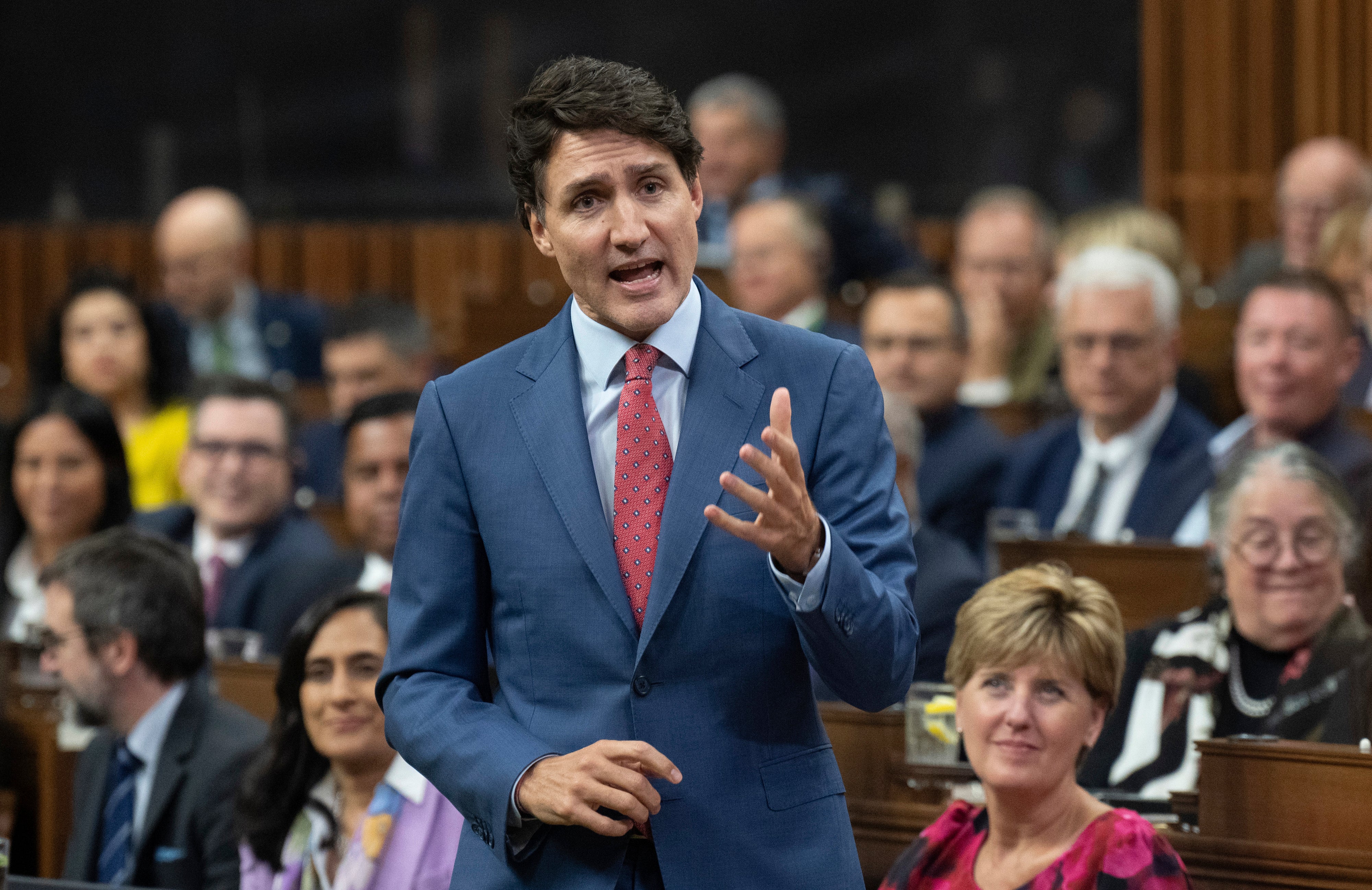Canada to reduce immigration targets as Trudeau acknowledges his policy failed
Prime Minister Justin Trudeau says Canada will significantly reduce the number of new immigrants in the country after acknowledging his government failed to get the balance right coming out of the pandemic

Your support helps us to tell the story
From reproductive rights to climate change to Big Tech, The Independent is on the ground when the story is developing. Whether it's investigating the financials of Elon Musk's pro-Trump PAC or producing our latest documentary, 'The A Word', which shines a light on the American women fighting for reproductive rights, we know how important it is to parse out the facts from the messaging.
At such a critical moment in US history, we need reporters on the ground. Your donation allows us to keep sending journalists to speak to both sides of the story.
The Independent is trusted by Americans across the entire political spectrum. And unlike many other quality news outlets, we choose not to lock Americans out of our reporting and analysis with paywalls. We believe quality journalism should be available to everyone, paid for by those who can afford it.
Your support makes all the difference.Canadian Prime Minister Justin Trudeau said Thursday that the country will significantly reduce the number of new immigrants it allows into the country after acknowledging that his government failed to get the balance right coming out of the pandemic.
Trudeau's Liberal government was criticized for its plan to allow 500,000 new permanent residents into the country in each of the next two years. On Thursday, he said next year’s target will now be 395,000 new permanent residents and that the figure will drop to 380,000 in 2026 and 365,000 in 2027.
“In the tumultuous times as we emerged from the pandemic, between addressing labor needs and maintaining population growth, we didn't get the balance right,” Trudeau said.
“Immigration is essential for Canada's future, but it must be controlled and it must be sustainable.”
Trudeau, who is facing calls from within his own party not to seek a fourth term, has endured mounting criticism over his immigration policies and the negative impact that population growth has had on housing affordability.
He said his government will reduce the number of immigrants Canada brings in over the next three years, and that this will freeze population growth over the next two years. Canada reached 41 million people in April. The population was 37.5 million in 2019.
Trudeau said Canada needs to stabilize its population growth to allow all levels of government to make necessary changes to health care, housing and social services so that it can accommodate more people in the future.
Immigration Minister Marc Miller said the lower immigration numbers will help with the country's housing shortage.
He also acknowledged the change in public opinion about immigration.
“That volume that we have put forward is of concern,” Miller said.
Miller said the government sees the pressures facing Canadians, and that it must must adapt its policies accordingly. He said government leaders have listened and will continue to protect the integrity of the immigration system and grow Canada's population responsibly.
“We are an open country, but not everyone can come to this country,” he said, noting that Canada will continue to welcome outsiders and that the government's immigration targets remain ambitious.
Trudeau's government has long touted Canada's immigration policy and how Canada is better than peer countries in welcoming newcomers and integrating them into the economy.
Pierre Poilievre, the leader of the opposition Conservative Party, accused Trudeau of destroying the national consensus on immigration.
“He has destroyed our immigration system through his own personal incompetence and destroyed 150 years of common sense consensus with the Liberals and Conservatives on that subject," Poilievre said.
“He cannot fix what he broke on immigration and housing or anything else because he is busy fighting his own caucus,” he added.
Poilievre was referring to calls by some lawmakers from Trudeau's own party to not run for a fourth term. Those calls represent one of the biggest tests of Trudeau's political career, but he said Thursday that he intends to stay on through the next election.
Nelson Wiseman, professor emeritus of political science at the University of Toronto, said the Trudeau government messed up badly on immigration.
"The government’s logic — to grow the economy and sustain an aging Canadian population by bringing in more young immigrants — was sound. But Ottawa has little control over meeting the housing, health, education, and other welfare needs of residents, whether they are citizens or immigrants,” Wiseman said.
"These are all provincial government responsibilities, and there was little cooperation or coordination between the two levels of government," he said.
A certain percentage of Canadians have always been xenophobic, but much less so than in some other countries, Wiseman said.
“Many Canadians have turned against the recent growing immigrant and temporary worker/student influx because of the growing housing, health, education, and other welfare challenges. Ottawa has read the polls and is responding according," he said.